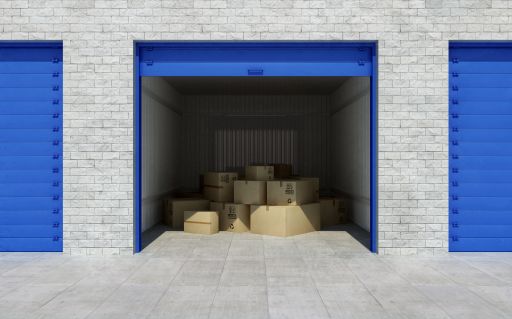
CommonCentsMom.com is advertiser-supported: we may earn compensation from the products and offers mentioned in this article. However, any expressed opinions are our own and aren't influenced by compensation. The contents of the CommonCentsMom.com website, such as text, graphics, images, and other material contained on this site (“Content”) are for informational purposes only. The Content is not intended to be a substitute for professional financial or legal advice. Always seek the advice of your Financial Advisor, CPA and Lawyer with any questions you may have regarding your situation. Never disregard professional advice or delay in seeking it because of something you have read on this website!
As a consumer of storage units, you may wonder what your annual income is if you’re going to rent out storage space. It is easy to figure out how much you’ll earn every year with some research.
According to the U.S. Census Bureau, the median income for households was $67,521 in 2020. If you’re renting out storage units and have been renting for several years, this means that you can earn up to $2,000 in a year.
If it’s tempting for you to get your storage unit, we have some advice for you.
What Should You Consider Before Renting?
You may have heard that the government requires you to pay taxes on money earned through renting storage space. This is true.
However, it’s also true that you don’t have to pay taxes on money earned through investing in stocks and bonds.
If you don’t have any assets yet, it might be wise to invest in stocks and bonds before starting a storage unit rental business.
With this said, you may want to consider investing in a few years of storage unit rentals before renting them out yourself.
This way, you can see how much money you’ll earn from renting and from investing in your storage units at the same time.
If it seems like a good idea to rent some units out now and save up for your storage units later on, then go ahead!
Become a Neighbor Host: The easiest way to make money from home by storing vehicles and belongings.
Are Storage Units Taxable?
Storage units are taxable, as governments consider them a passive income. The value of a storage unit depends on the location and size.
The average cost per month is approximately $200. If you have an extra bedroom in your home, it could be more expensive than a storage unit.
Do You Need to File a Return?
The answer to this question depends on your situation.
You may be able to file an income tax return without filing one for renting storage units, but you need to consult with a tax professional to find out if you are eligible for such an exemption.
The most important thing to remember is that if you don’t file taxes, then you won’t be able to receive any of the money that is paid in your account as fees and/or interest payments. And that means no money at all!
Income from rental property, stock dividends, or capital gains taxes should be paid annually.
Your unit is treated as property for tax purposes. If your unit has been rented for more than 12 months, it will be considered income for that year.
A Storage Unit Rental Business Guide: Taxation of Renting Storage Units
The IRS provides the following guidelines for taxing storage unit rentals:
If your unit is used primarily for business purposes, such as a commercial storage unit, then it’s considered a depreciable asset and you’ll be taxed on the value of the asset at the end of each year.
If your unit is used primarily for personal purposes (such as storing personal items or furniture), then it’s considered an expense and is deductible from your gross income.
You can use one or more of these methods to determine if your storage units are taxable or not. We recommend getting professional help with this process if you’re not sure what the right choice is.







